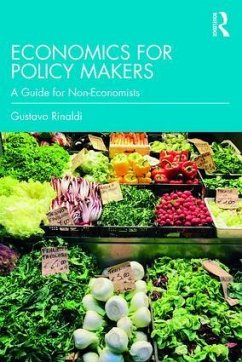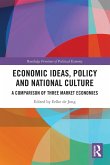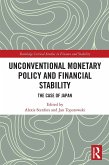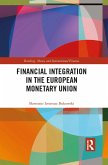Certain key economic decisions taken by organizations and indeed countries are often not made by economists but by businessmen, trade unionists, politicians and policy-makers. Those who employ people, those who represent workers, those who make laws and those who elect them need economics but may have little time or desire to study it.
This book makes economics easily available to everyone. The author's use of simple language and avoidance of technical jargon provides non-economists with a better understanding of economic reasoning and the tools "to know and to decide". The author achieves this through introducing key concepts in short presentations and arming the reader with selected press articles and recent research using these concepts. An analysis of these demonstrates how a general concept can be derived from a specific context and highlighted questions provide the basis for further debate. The reader can then focus on the parts most relevant to their ownneeds.
This book will have great appeal to employers, trade unionists and public officials attending courses organized by international institutions, professional training providers, as well as graduate students of courses where economics is an important element, especially in relation to its policy implications. Finally, it is invaluable for anybody who has wanted to learn the basics of practical economics but has been deterred by its technicalities.
This book makes economics easily available to everyone. The author's use of simple language and avoidance of technical jargon provides non-economists with a better understanding of economic reasoning and the tools "to know and to decide". The author achieves this through introducing key concepts in short presentations and arming the reader with selected press articles and recent research using these concepts. An analysis of these demonstrates how a general concept can be derived from a specific context and highlighted questions provide the basis for further debate. The reader can then focus on the parts most relevant to their ownneeds.
This book will have great appeal to employers, trade unionists and public officials attending courses organized by international institutions, professional training providers, as well as graduate students of courses where economics is an important element, especially in relation to its policy implications. Finally, it is invaluable for anybody who has wanted to learn the basics of practical economics but has been deterred by its technicalities.
"This exceptionally useful book does exactly what the title claims: it explains economics simply, in words and graphs. Those without much, if any, training in the subject who find themselves having to deal with its underlying concepts and measurements regularly, which is most people in business and policymaking, will find this an invaluable guide. It will take a bit of effort to work through it. But nothing worthwhile is easy. The reward will be much greater understanding of the economy, economics and economists." - Martin Wolf, Chief Economics Commentator, Financial Times
"This book is easy and clear reading, rich in practical examples and case studies of the issues decision makers in the private and the public sectors face daily. The book is full of ideas, tools and thought-frameworks that are crucial for business leaders who wish to influence policies that foster businesses to flourish and countries to develop." - Deborah France-Massin, Director, Bureau of Employers' Activities, ILO Geneva.
"Economics for Policy Makers is a must read for business leaders and trade unionists, but also for any development practitioner who is "daily in contact", but not familiar or even "scared" by macro and micro economics. With a very practical approach highlighting the applications of economic principles to real situations, the book helps in better understanding which are the different policy options for decision makers and in explaining the impact of government policies and business strategies on economic growth and social development." - Paolo Salvai, Senior Programme Officer, International Training Centre of the ILO
"Prof. Rinaldi's book is an excellent introduction into economic analysis for practitioners in the field of collective bargaining. I am certain that this book will become an essential reading for anybody trying to prepare for collective negotiations, be it at the level of an individual company, in sectoral or occupational representations or at the level of national tripartite institutions." - Dr Ekkehard Ernst, Research Department, International Labour Organisation
"This book is easy and clear reading, rich in practical examples and case studies of the issues decision makers in the private and the public sectors face daily. The book is full of ideas, tools and thought-frameworks that are crucial for business leaders who wish to influence policies that foster businesses to flourish and countries to develop." - Deborah France-Massin, Director, Bureau of Employers' Activities, ILO Geneva.
"Economics for Policy Makers is a must read for business leaders and trade unionists, but also for any development practitioner who is "daily in contact", but not familiar or even "scared" by macro and micro economics. With a very practical approach highlighting the applications of economic principles to real situations, the book helps in better understanding which are the different policy options for decision makers and in explaining the impact of government policies and business strategies on economic growth and social development." - Paolo Salvai, Senior Programme Officer, International Training Centre of the ILO
"Prof. Rinaldi's book is an excellent introduction into economic analysis for practitioners in the field of collective bargaining. I am certain that this book will become an essential reading for anybody trying to prepare for collective negotiations, be it at the level of an individual company, in sectoral or occupational representations or at the level of national tripartite institutions." - Dr Ekkehard Ernst, Research Department, International Labour Organisation








